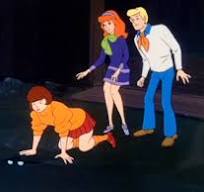Myopia, or nearsightedness, is a common condition that yourself or people you may know experience. These people often wear glasses or contacts to improve their distance vision, and may have a difficult time navigating without correction.

Myopia can increase the risk of developing eye problems later in life such as cataracts, retinal detachment, and glaucoma. Catching myopia early and slowing progression can benefit in the long run by decreasing the risk of needing high amounts of correction to function, and avoid these eye problems until the future.
Why is this important? Myopia is becoming increasingly more prevalent in younger patients. Research suggests exposure to screens and near point activities can contribute to earlier onset and progression of myopia. Screens can be hard to avoid in this day and age. So what can we do to help?
- Bringing your child in for a comprehensive eye examination. We can detect early signs of myopia and determine if glasses are needed. They may not know they need glasses!
- Increased time outdoors. Research suggests more time outside can slow down the progression of myopia.
- Less time on screens. This sounds like a given, but giving the eyes a break from close work can help. Remember the 20/20/20 rule.
But what if my child continues to progress? Are they doomed??
Absolutely not! There are treatments that can be implemented. This is called myopia control. Myopia control uses different techniques started by a doctor to slow down the rate of progressive myopia. Our offered services include atropine therapy (eye drops), and soft contact lenses. To determine if your child is a candidate for any of these therapies, reach out to us to schedule an appointment!